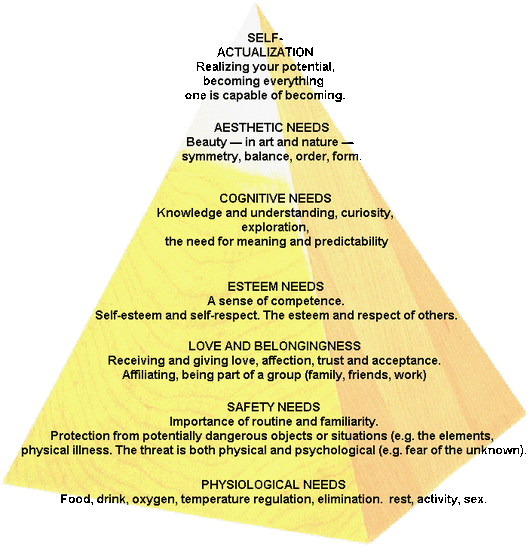Many previous societies operated from the idea of an "Ideal". Ancient Greece for example had the idea of the ideal man or woman. During the Renaissance, the idea of someone who was the supreme generalist, the Renaissance Man, emerged. Our present society seems to operate on a default. What ideal do we aspire to? A professional sports athlete? Someone who trains their body to its limit, yet is often out of a career by the age of forty with few prospects for the rest of their life, hardly seems an ideal to aspire to. A millionaire? Money can be good or bad and certainly a proper amount is needed for the bills we all pay yet millionaires are not without the same worries and troubles that most of us have less the obvious one. An intellectual? All brain and no brawn, or possibly little heart? It seems the question eludes our society, which can be freeing in one way. In another however, it is a question which would be well answered in order to help fix the problems in our educational, political, and medical institutions.
What is a healthy human being? This is a question that should be a no-brainer. Unfortunately, it is not. We know what an unhealthy human being is, but most of us would have difficulty defining robust physical, emotional, mental and spiritual health. We simply know what it looks like when health is not present. We define our existence by duality, but we focus on the negative side. If asked what is a healthy human being, most people will give a "default" definition. For example, a healthy human being is someone who is not sick. Yet simply being "not sick" is not necessarily being in a robust state of health. Some people would be able to come up with a "positive" definition. For example, a healthy human being is positive, happy, successful. What should one be?
For those astrologically minded readers, Neptune in Pisces, which once heralded in the Renaissance, may help us to define our ideals once again. Rediscovery of our connections with all things, which is being done through experiments in quantum physics, may assist the framing of the answer to what should a healthy human being look like. The Renaissance Man was an individual who was knowledgeable in a number of areas, a lifelong learner if you will, a well-rounded person, capable, genteel, independent and interdependent. What would the Renaissance Man look like today?
What is a healthy human being? This is a question that should be a no-brainer. Unfortunately, it is not. We know what an unhealthy human being is, but most of us would have difficulty defining robust physical, emotional, mental and spiritual health. We simply know what it looks like when health is not present. We define our existence by duality, but we focus on the negative side. If asked what is a healthy human being, most people will give a "default" definition. For example, a healthy human being is someone who is not sick. Yet simply being "not sick" is not necessarily being in a robust state of health. Some people would be able to come up with a "positive" definition. For example, a healthy human being is positive, happy, successful. What should one be?
For those astrologically minded readers, Neptune in Pisces, which once heralded in the Renaissance, may help us to define our ideals once again. Rediscovery of our connections with all things, which is being done through experiments in quantum physics, may assist the framing of the answer to what should a healthy human being look like. The Renaissance Man was an individual who was knowledgeable in a number of areas, a lifelong learner if you will, a well-rounded person, capable, genteel, independent and interdependent. What would the Renaissance Man look like today?
Who are the people who would be seen as the "Renaissance Men"(or Women)? An innovators like Steve Jobs, someone who helped achieve independence for a nation like Mahatma Gandhi, or equality like Nelson Mandela, or Martin Luther King, Jr.or even someone like Helen Keller, who despite being deaf and blind, attended university and traveled the world, these would be on the list of people who actualized their potential. These people show the "power of one" for positive influence. How did they do it? Why don't more people do it?

Abraham Maslow identified the needs above as being basic to all humans. Although not all of us have the same amount of items in any one category, all of us ultimately are striving to actualize our potential. E.E. Cummings the poet, alluded to the fact that to be an individual in a world bent on making everyone the same was a momentuous feat, and I am paraphrasing. There is tremendous social pressure to be the same, which begins at Kindergarden if not sooner. These self-acualizers are resistent to this pressure. They do not conform to the outward demands of the society but are able to maintain their inner direction. Maslow identified several other characteristics which these individuals possess:Self-Acceptance and Democratic World View, realistic, spontaneous,solitude and privacy, philosophical sense of humour,autonomy, problem-centred, and have peak experiences. If we know what individuals need to be healthy and we have identified the characteristics of self-actualizers, it begs the question, why are we not using that as the ideal for our society, and more pointedly, the basis for our education system? Unless there is a desire not to have healthy individuals? Just sayin'...
Namaste!
Namaste!
 RSS Feed
RSS Feed